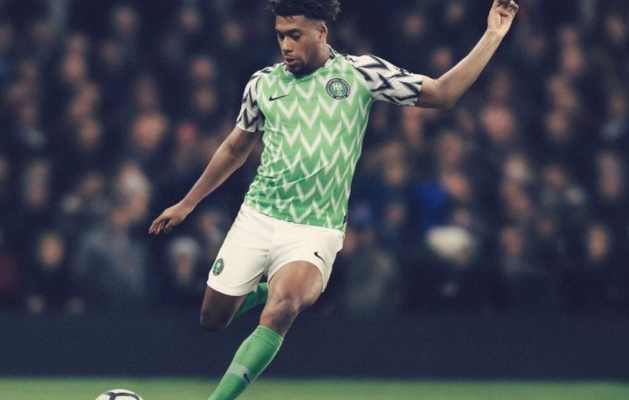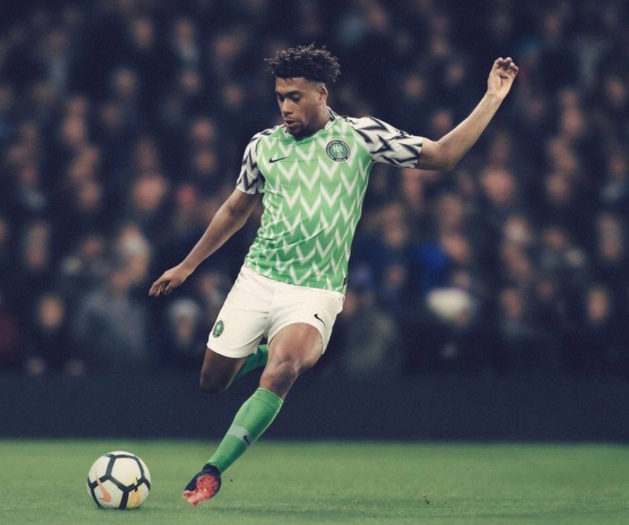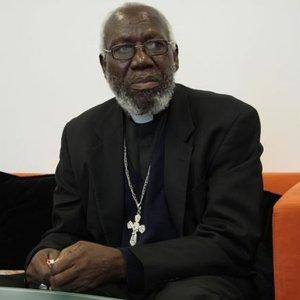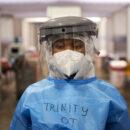How far can Africa go at the World Cup?

Meet the five African teams hoping to make history at the 2018 World Cup in Russia.

Nigeria are one of a few teams with a good chance of getting into the knockout stages. Credit: Nigeria Super Eagles.
The 2018 FIFA World Cup tournament kicks off from 14 June in Russia. Africa has five representatives in this elite competition: Nigeria, Egypt, Senegal, Morocco, and Tunisia.
No African team has ever qualified for the World Cup semi-finals. Many pundits argue that now is the time to change Africa’s World Cup story. The continent has always promised a great deal in the international showcase but delivered little.
Looking at the pedigree of the African teams, and their respective opponents, for 2018, Nigeria and Senegal stand a good chance to qualify for the second round and possibly beyond. Here is a closer look at Africa’s five teams:
1. Nigeria
Compared to other African teams, Nigeria has been consistently represented at the World Cup since their first appearance in 1994. The Super Eagles have made it to the 1998, 2002, 2010, 2014 and, now, 2018 World Cup tournaments.
On the way to Russia, Nigeria eliminated Swaziland in the preliminary round and Zambia, Cameroon and Algeria in the group phase. The team has been under German coach Gernot Rohr since 2016 and prefers a 4-2-3-1 formation. Their most notable star is captain John Obi-Mikel, who previously successfully captained the under-20 and under-23 sides.
The other players to watch are Victor Moses of Chelsea, Kelechi Iheanacho and Ahmed Musa of Leicester as well as Alex Iwobi of Arsenal. Nigeria’s strength lies in its solid midfield play and potent attack.
They face Croatia, Iceland and Argentina in Group D. Good results against Croatia and Iceland can propel them to the second round – to which they also advanced in 1994, 1998 and 2014 – and even deeper into the tournament.
2. Egypt
Egypt makes a long awaited return to the World Cup. Despite being a dominant force at the Africa Cup of Nations, winning a record seven times, Egypt has only reached the World Cup finals three times: in 1934, 1990 and now in 2018.
The Pharaohs booked their ticket after overwhelming Chad at home and away to qualify for the group stage. Egypt then overcame Congo, Ghana, and Uganda. Hector Cuper, who coached Valencia of La Liga and Inter of Serie A, is the man tasked with leading Egypt at Russia 2018.
The team relies on patient build up and opportunistic breakaways to score, usually via their star player Mohamed Salah of Liverpool. Salah, who scored a record number of goals in the latest Premier League season is the man to watch. But his injury during the Champion’s League final against Real Madrid has dampened the euphoric hopes of Egyptian fans. Other star players include Mohamed Elneny of Arsenal and Ahmed Hegazi of West Bromwich Albion.
Although this team looks thin on star power, their collective understanding, solid defence and team chemistry should put fear into their Group A opponents, which consist of Uruguay, Russia and Saudi Arabia.
3. Tunisia
Tunisia makes its fifth appearance at the World Cup, having previously featured in 1978, 1998, 2002 and 2006.
Coached by Nabil Maâloul, the Eagles of Carthage qualified after beating Mauritania to enter the Africa group stage where they overcame stiff resistance from Guinea, Libya and DR Congo.
Unlike other African sides with one or two outstanding individual players plying their trade in the big five European Leagues, the Tunisian squad play in lower ranked leagues. These include Saif-Eddine Khaoui and Wahbi Khazri. Formerly at Sunderland, Khazri seems to have rediscovered his form on loan at Rennes last season, scoring nine goals in 24 league games.
The team’s resourcefulness, grit and spirit will be fully stretched in their Group G fixtures against England, Belgium and Panama. It will require a major upset for them to progress from this tough round.
4. Morocco
Morocco last played in the World Cup 20 years ago and have previously represented Africa four times at the tournament. Their 1986 squad was the first African team not only to make it out of the group stages, but emerge as leaders of a pool that included England, Portugal and Poland.
Coached by Hervé Renard, Morocco narrowly eliminated Equatorial Guinea in the preliminaries. But they proved their worth when they over-powered the highly-rated Gabon, Côte d’Ivoire and Mali to earn qualification.
Only six of the 23 player-squad were born in Morocco. The rest were born in France, Spain, or the Netherlands, but have Moroccan heritage and have maintained a connection with the country. Key players include captain and Juventus centre back Mehdi Benatia and attacking midfielder Mbark Boussoufa, a two-time Belgian Golden Shoe winner and former Chelsea youth player back in 2006.
Morocco’s talented team face Iran in their opening match. It’s a must-win game given that they will next be up against highly-rated Spain and Portugal in Group B.
5. Senegal
Senegal shocked the footballing world when they brought down France during the debut at the World Cup in 2002. They followed that up by qualifying for the quarter-finals, the second African team to do so. As such, the Lions of Teranga must be looking forward to their second World Cup under coach Aliou Cisse, who captained the legendary 2002 team.
Senegal were held to a 2–2 draw away to Madagascar but recovered to eliminate them 3–0 at home. In the group stage, Senegal overpowered Cape Verde, Burkina Faso and South Africa.
Senegal has highly talented players who mostly ply their trade in European leagues. These are led by Sadio Mane who has had a very successful season with Liverpool.
They face Poland in their opening match, followed by Japan and Colombia in Group H.
This article was originally published on The Conversation. Read the original article.![]()





